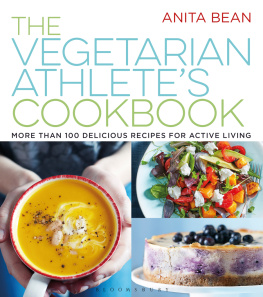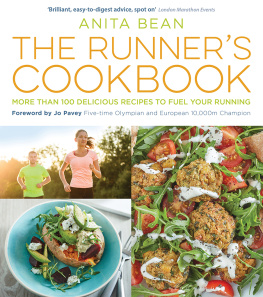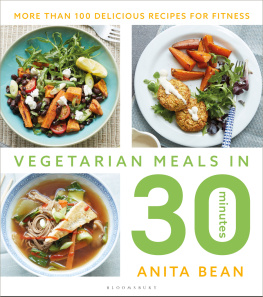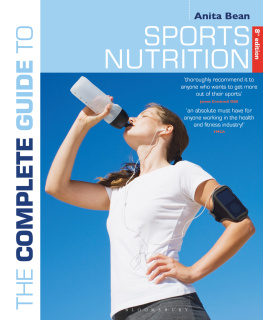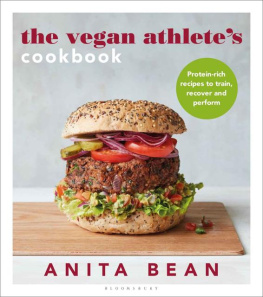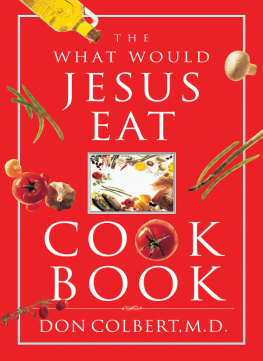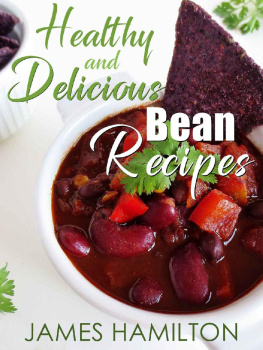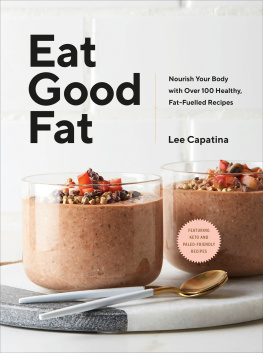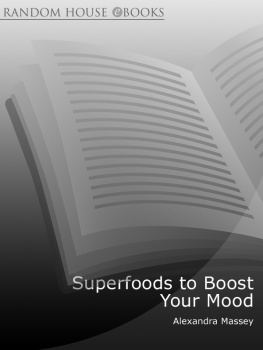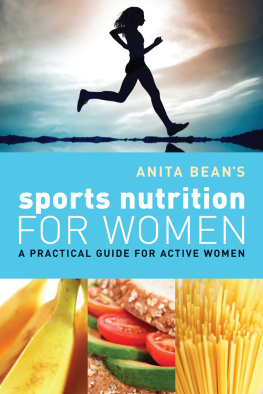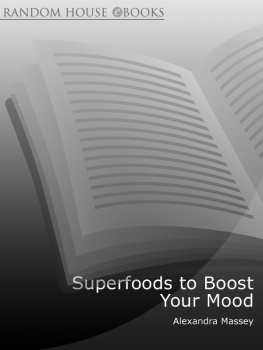

CONTENTS

Well, youve made it into your sixties, seventies or eighties, so you obviously know a bit about what to eat already but this book will help you eat even better and stay healthier for longer. In fact, if you follow our advice you will feel younger, like you did five or ten years ago. This is not because we are providing the recipe for the elixir of life; there is no magic substance or food that will reverse, stop or even slow down the ageing process. Of course, that doesnt stop people trying to find one; the main headline of the Daily Express recently was: Pill that adds 10 years to your life could be ready in a decade but dont hold your breath. But the good news is that there are other ways of dealing with the changes that too many of us still assume to be the inevitable consequences of ageing. The ageing process is natural and is not actually the cause of most of the problems that are attributed to it; if you were only affected by the ageing process you would be independent and active at the age of ninety. In reality, there are three other processes that affect us as we grow older:
- loss of fitness
- disease caused not by the ageing process but by our environment and lifestyle, including what we eat
- adopting a negative attitude based on the undue pessimism about old age that pervades our society

We now know that our lifespan or length of life and even more importantly our health span years of life free from disability are much more determined by these three processes than by the ageing process.
Obviously it is best to maintain fitness, reduce the risk of disease and be positive throughout our lives. But it is particularly important when the phase of growth and development stops and the ageing process begins, which is about the age of thirty. However, the best news is that it is never too late to start and to enjoy the benefits that result from our efforts. Whether you are sixty or seventy or eighty, you can do yourself the world of good if you follow these simple steps:
- keep active physically to improve and maintain your bodily fitness
- keep active mentally
- stay involved and use your experience to help others
- stop smoking try again even if you have failed ten times
- use medicines and healthcare with caution, and only if you develop disease
- eat well the subject of this book
If you want to learn about the first five steps listed here then read Sod Sixty! and Sod Seventy! , the companion books to this one. The word sod was chosen for the titles of these books because it expressed the anger and irritation of the author on being asked by a younger person in rather gloating fashion and for the umpteenth time: How does it feel to be sixty? He replied: Sod sixty, sod that, you just have to get a ****** grip.

The people who asked the question were scientifically trained, some of them as medical doctors. The authors exasperation was due to the fact that he thought everyone knew that being sixty or seventy is not a matter of how you feel. Of course feelings are important, but how you are at sixty or seventy really depends on what you have done to keep healthy in the previous decade, what your outlook is on the next and a little bit of good luck. Your genes are important but determine only about 20 per cent of your health. In any case your genes and your environment are interwoven. You need to be lucky enough to have inherited fewer than average of the genes that cause, or increase the risk of disease. You also need to be lucky enough to be born into a family that is stable, wealthy, not stinking rich but not impoverished, and which values children and their education. We now know that the environment in which your parents and even your grandparents lived can influence the way your genes work. However, once again this only determines another 20 per cent of the state of your health. The other factors, which are under your control (and theyre worth repeating), are:
- your physical activity
- your mental activity
- how engaged you are in helping other people
- your lifestyle, for example whether you smoke, or drink too much alcohol
- how you cope with disease and use healthcare wisely
- what you eat
The sod sixty comment was the result of what has been called the Curse of Knowledge, which in essence is the problem that someone who has been learning about a particular thing for years has trouble remembering what it was like not to know about that thing. Stupidly, the exasperated sixty-year-old had overlooked the fact that it had taken him more than ten years to learn and accept that ageing was relatively unimportant and that the three other factors had to be taken into account.
The comment was not an insult addressed to the individual who had asked the question how does it feel to be sixty? once too often, even though it was a little annoying, it was actually directed at the idea that being sixty means being old. In retrospect the comment seemed so appropriate that sod it has become the general term we use to put ideas that some people associate with being sixty, seventy or older, in their place. These include ideas such as:
- old people are conservative and dont like change
- people aged sixty should just take it easy
- people aged sixty or seventy have had it good and we are now paying for their pensions
- fitness is only for young people
- all older people are demented
- all old people are the same
- everything that happens to older people is due to the ageing process

Sadly, these and other great myths of ageing, described in a book of that title by Joan T. Erber, are not only held by people who have been poorly educated, they are the beliefs held by many educated people, including some health care professionals and even doctors. It was for this reason that Sod Sixty! and Sod Seventy! were conceived and written. The core message in both books is the same, but there are important differences. For example, those in their sixties were born in the 1950s, those in their seventies in the 1940s; those in their sixties are often still caring for parents in their nineties; those in their seventies may be caring for a spouse or friend who has become disabled by disease.
Many of the issues faced by those born in the baby-boom era are dealt with in the two earlier titles but the topic of eating well in your sixties and beyond needed its own edition; hence the book you are holding in your hands. The problem is not ignorance. Many people are not aware that the risk of dementia can be reduced by about 30 per cent by doing exactly what we are advocating here, but when they are informed they pick it up quickly. In matters to do with food, eating and diet there is a different problem confusion.
Every year a new guru appears with a revolutionary diet that will transform your life, an expert in the medical or healthcare establishment issues new guidelines on this or that food type and, understandably, every doctor and nurse seems to have their own position on eggs or cholesterol or statins. There is agreement on some things, on Five A Day for example, but in comparison with professional knowledge and advice on smoking Stop It or exercise Increase It knowledge about, and advice on, diet is at best confused and at worst contradictory. If you add the confusion about ageing you get in a right mess and that is why we have written this book. The professionals are equally confused except for the excellent registered nutritionists and dietitians, but there are far too few of them to go round. In October 2015, NICE, the key source of evidence and guidance for the NHS and public health in England, published a major report emphasising that disability, dementia and frailty were all preventable by actions taken in midlife, the main one being a healthy diet that included eating fruit and vegetables daily. The result in their view is healthy ageing.
Next page

